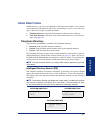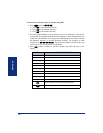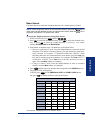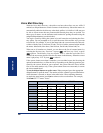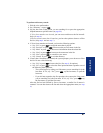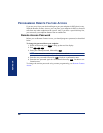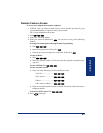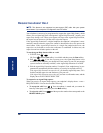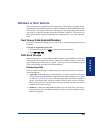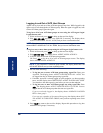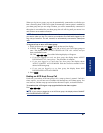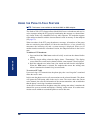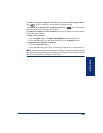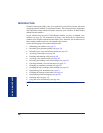
85
Inter-Tel
®
Model 8664/8665/8668 User Guide
MOVING ON
WORKING IN HUNT GROUPS
Your system may be programmed with “hunt groups.” Hunt groups are groups of end-
points that share a common extension number in addition to having individual exten-
sion numbers. This allows someone to call anyone in the group (using the common
extension) or a specific member (using the individual extension). The members of
these groups and the common extension(s) are programmed by your system adminis-
trator.
Hunt Group Calls Enabled/Disabled
If you are a member of a hunt group, you can divert or accept hunt group calls to your
extension.
To divert or accept hunt group calls:
1. While in idle mode, press to bring up the two-line display.
2. Dial .
ACD Hunt Groups
Some hunt groups use a special feature called Automatic Call Distribution (ACD) that
distributes the hunt group calls equally among the available members. These hunt
group members are referred to as “agents,” who log in to the ACD hunt group to
receive calls and log out to halt ACD hunt group calls.
Distributing Calls
Calls are distributed through an ACD hunt group based on Agent IDs or extensions,
as described below.
• Agent IDs: If the hunt group is programmed to use ACD Agent IDs, each agent
is assigned an Agent ID number to enter during the login procedure (see Logging
In and Out of ACD Hunt Groups). The hunt group calls are routed to logged-in
agents, according to their Agent ID number instead of their extension number.
Because the Agent ID is not associated with any extension, the agent can use any
endpoint in the system to log in.
• Members: If the hunt group is not programmed to use Agent IDs, it will have a
pre-programmed list of endpoints and will send calls to the endpoints where
agents are logged in.
MENU
3 2 4



